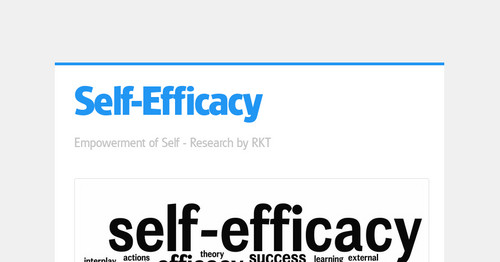Motivational Interviewing
Research by- RKT
SU-19_PSY3413-WA01A Substance Abuse and Addictive Behavior - D. Rutledge at Rochester College, we studied Motivational Interviewing...
These tools are brilliant and indeed a resource for the common person see how to connect to others in a non-threatening way that will empower growth.
Richard Kerry Thompson
From https://pubs.niaaa.nih.gov/publications/Practitioner/YouthGuide/YouthGuide.pdf
Over the past few decades, advances in behavior research and theory propelled a major shift in the concept of motivation (Tevyaw & Monti, 2004). It is no longer considered an all-or-nothing, unchanging character trait in which an individual is either motivated or not. Instead, motivation is viewed as a dynamic state of “readiness to change” that can be influenced by interpersonal interactions, with confrontation leading to resistance, and with understanding and empathy leading to change (Tevyaw & Monti, 2004; Levy et al., 2002). How do people move forward in the change process? According to behavior researchers, they become motivated when they “perceive a discrepancy between where they are and where they want to be” (Miller et al., 1992). As a trusted health care provider, you are in a prime position to help your patients recognize the disconnect between their behavior and their goals, values, and beliefs, and to make a change for the better.
What is motivational interviewing?
Motivational interviewing is a directive, patient-centered style of counseling that helps patients explore their natural ambivalence about changing. Its friendly, collaborative “spirit” is considered more important than any particular set of techniques. The broad goal is to elicit motivation from within the patient, not impose it from without. A core task is to help patients examine their own reasons for and against making a change, and then guide them to a resolution that triggers change in a healthy direction. Once patients commit to a change, they may or may not need further assistance as to how to make the change—where there is a will, there are many ways (Rollnick & Miller, 1995). Although this counseling style grew out of the substance abuse field, motivational interviewing is now used to address many other health behaviors, such as medication compliance and dietary control (Erikson et al., 2005; Rubak et al., 2005). Thus, you may find that skills development in this area will serve you well for any patient behavior change you would like to facilitate.
How is it done?
There is no single prescribed way to do motivational interviewing; each interaction will be as individual as the particular patient and his or her perspectives, goals, values, and beliefs. At its core, however, four basic principles underlie the approach (Miller et al., 1992):
Express Empathy: Take a warm, nonjudgmental stance; listen actively and reflect back on what is said to help the patient feel heard.
Develop Discrepancy: Raise awareness of the patient’s personal consequences of drinking; ask how his or her goals, values, or beliefs could be hindered or compromised by drinking. 30 | Alcohol Screening and Brief Intervention for Youth | A Practitioner’s Guide Clinician Support Materials
Roll with Resistance: Acknowledge the patient’s beliefs and feelings; avoid lecturing or debating; change gears and affirm autonomy if the patient shows resistance.
Support Self-efficacy: Express confidence in the patient’s ability to make a change; point to patient’s strengths and other successes as examples.
As with most skills, proficiency in motivational interviewing increases with a combination of training, practice, and feedback. For more background about motivational interviewing, along with information about workshops and coaching, visit www.motivationalinterview.org or www.motivationalinterview.net. You may also wish to refer to the book and journal articles referenced in this section.
From Course
Learning Outcomes
After studying Chapter 3 students should understand that:
- Motivational Interviewing is collaborative, evocative, and supportive of client autonomy.
- Eliciting talk of change and keeping focus on change itself are the heart of Motivational Interviewing.
- Ambivalence needs to be looked at in a new light.
- Motivational Enhancement Therapy is designed primarily for use in substance abuse treatment. It differs from Motivational Interviewing in that it includes the steps of assessment and feedback.
https://www.ncbi.nlm.nih.gov/books/NBK64964/
Chapter 3—Motivational Interviewing as a Counseling Style
Motivational interviewing is a way of being with a client, not just a set of techniques for doing counseling. Miller and Rollnick, 1991
Motivational interviewing is a technique in which you become a helper in the change process and express acceptance of your client. It is a way to interact with substance-using clients, not merely as an adjunct to other therapeutic approaches, and a style of counseling that can help resolve the ambivalence that prevents clients from realizing personal goals. Motivational interviewing builds on Carl Rogers' optimistic and humanistic theories about people's capabilities for exercising free choice and changing through a process of self-actualization. The therapeutic relationship for both Rogerian and motivational interviewers is a democratic partnership. Your role in motivational interviewing is directive, with a goal of eliciting self-motivational statements and behavioral change from the client in addition to creating client discrepancy to enhance motivation for positive change (Davidson, 1994; Miller and Rollnick, 1991). Essentially, motivational interviewing activates the capability for beneficial change that everyone possesses (Rollnick and Miller, 1995). Although some people can continue change on their own, others require more formal treatment and support over the long journey of recovery. Even for clients with low readiness, motivational interviewing serves as a vital prelude to later therapeutic work.
Motivational interviewing is a counseling style based on the following assumptions:
- Ambivalence about substance use (and change) is normal and constitutes an important motivational obstacle in recovery.
- Ambivalence can be resolved by working with your client's intrinsic motivations and values.
- The alliance between you and your client is a collaborative partnership to which you each bring important expertise.
- An empathic, supportive, yet directive, counseling style provides conditions under which change can occur. (Direct argument and aggressive confrontation may tend to increase client defensiveness and reduce the likelihood of behavioral change.)



